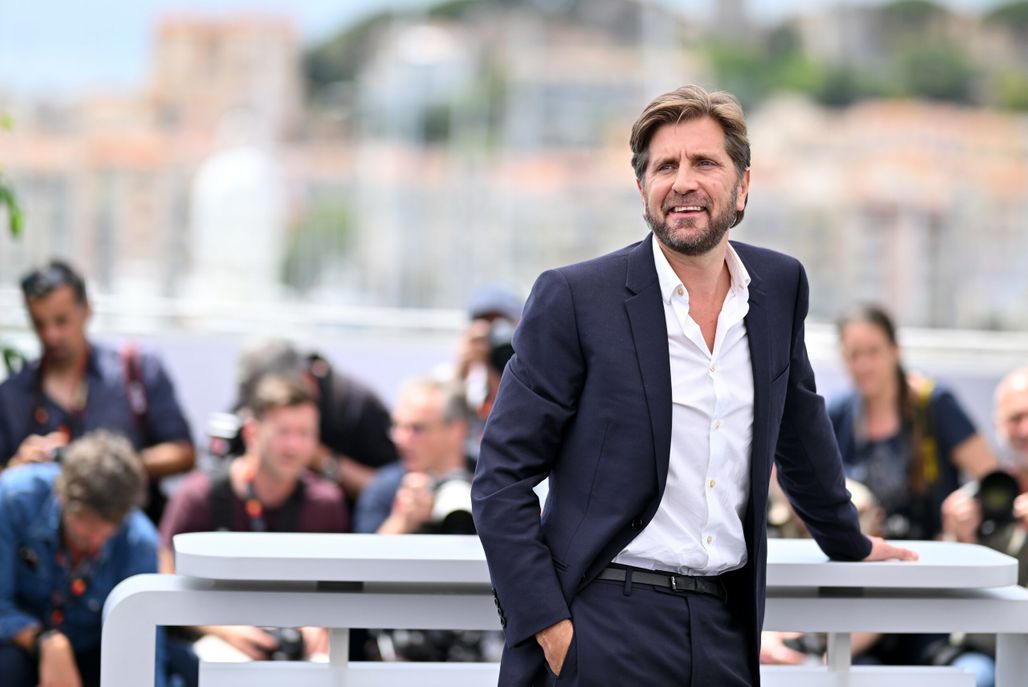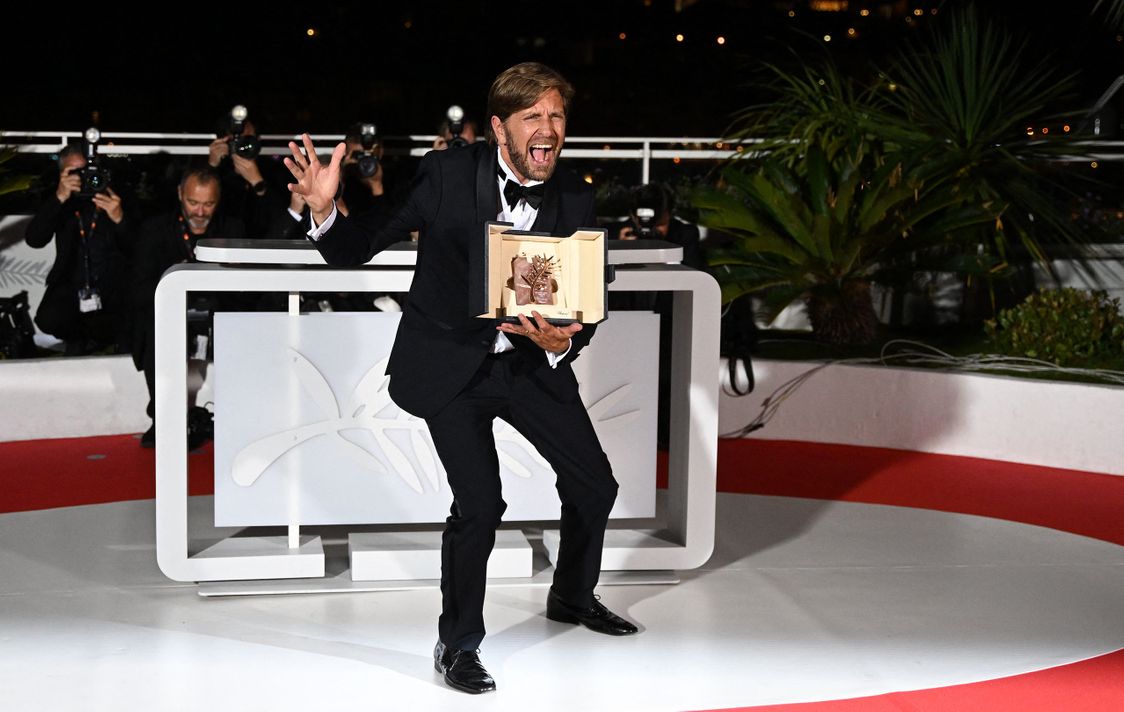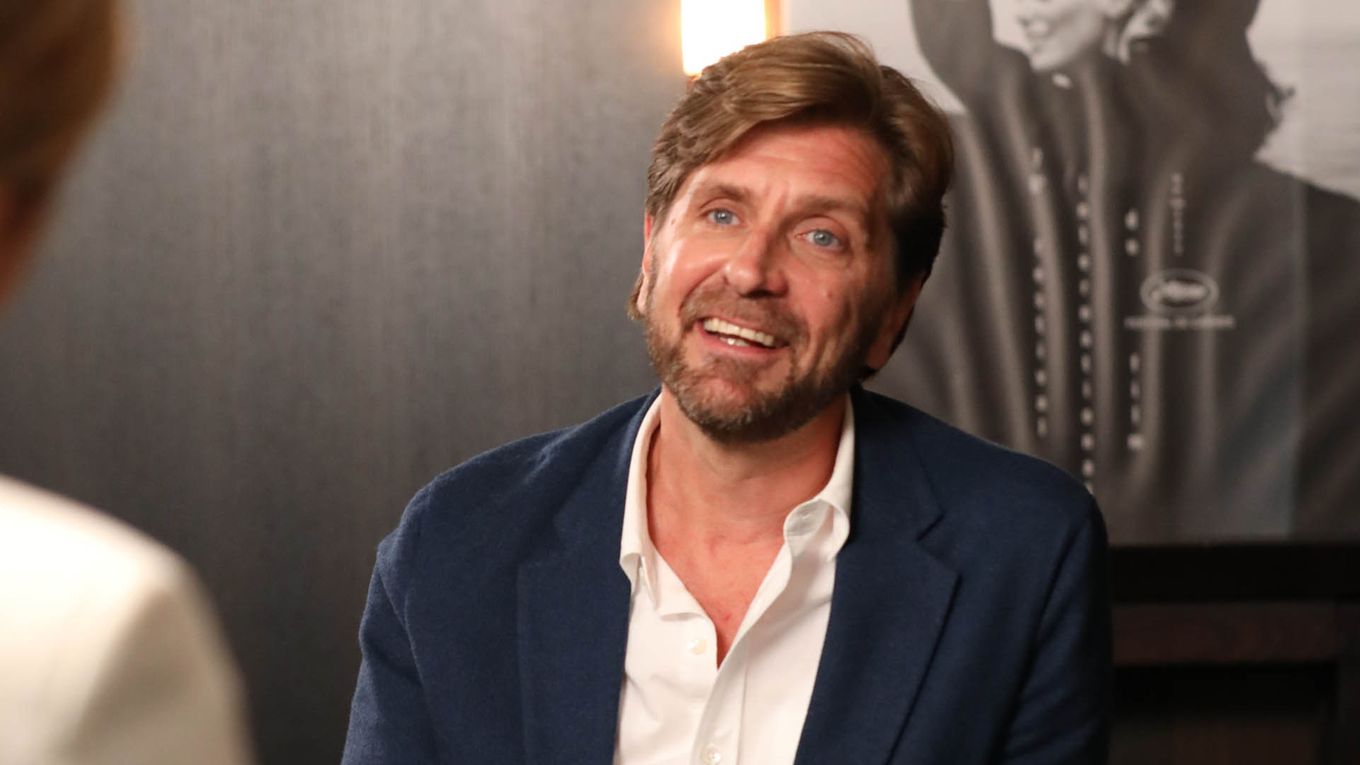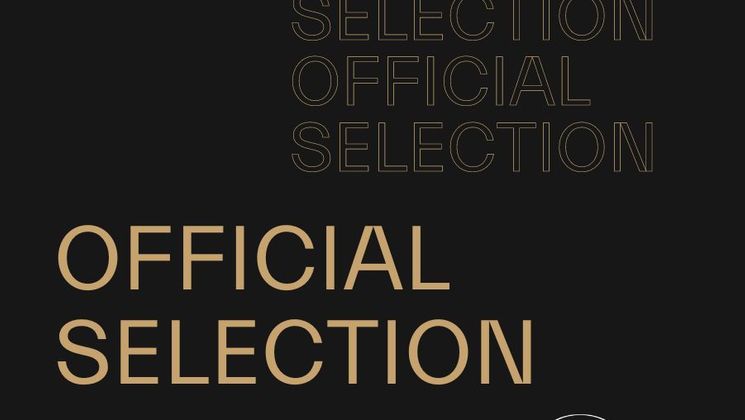
Meet Ruben Östlund, President of the Feature Film Jury

Two films In Competition were enough for a double. After a Palme d’or for The Square in 2017 and a second last year for Triangle of Sadness, Ruben Östlund is presiding over the Feature Film Jury this year. From two-time award winner to the one who hands out the award, the Swedish director looks back on his Cannes experience and the highlights of his career.
Where are your two Palmes d’or?
With both of the Palmes d’or, we went on a tour and brought them to different cities in Sweden. For example, the set designer got to bring it to her hometown, the costume designer got to bring it to her hometown, and they showed it to the audience and we had a screening of the film. Now they are in my office. When I’m sitting and writing the next film, when I look up, I see two Palmes d’or staring down at me. So it’s very good but it creates a lot of pressure.
What is your favourite Palme d’or so far?
I love Amour and The White Ribbon by Michael Haneke. I love The Tin Drum and Apocalypse Now, which shared the Palme d’Or. I love Entre les murs (The Class), the French movie about school and the French documentary Être et Avoir (To Be and to Have). Pulp Fiction is a great movie. There’s so many movies that you live with, and when you look back, it actually won the Palme d’or.
Did the Festival de Cannes change your career? How?
Yes, 100%. There’s a certain prestige that comes with the festival that gives you attention. That makes it accessible for you to get money to make films. There’s a certain kind of celebrity that is connected with Cannes. I live with it today and it’s not huge in any way. You’re anonymous in most places where you are.

What is the greatest achievement in your career?
When it comes to moviemaking, I did a little film with my mother. She is very politically engaged and she became a leftist during the sixties. And she wanted to gather with her party members, she’s connected to a left wing party in Sweden and they wanted to create an anti-NATO movie for the Internet. We wanted to create something that would get clicks, something viral. So there was this group of 40 people that were maybe 65 to 80 years old. We made a flash mob in a big mall in Gothenburg in Sweden, where I live. And all of a sudden they just fell down on the floor and pretended that they had been shot or something like that. And for me, it was beautiful to see how people even at that age are so politically active and still doing things in order to try to change society in a way.
What is your biggest failure and what did you learn from it?
I had horrible screenings of Play, which is a film that I’m very proud of. When I was at the first screening here at the Directors’ Fortnight in Cannes, the film was not 100% finished. The rhythm of the film was not working and it was challenging the audience. The film consisted of 42 single takes without cuts. So 42 scenes, 42 cuts. And the pace of the film was very, very slow. And in front of me, there was an older couple and the man, when he saw the first frame of the film, he started to look up and went: “Oh my God, am I going to watch this?” So we had to deal with him hating the film. And it was a very painful moment. Then I rewatched the film because I wanted to reedit it, and I went to the Munich Film Festival. There, there was a person in the audience that started to go: “Cut!” when he thought there should be a cut. And the audience was starting to argue with him like, “Yes, shut up. What are you doing?” He was like, “The film, it’s wrong! It’s done in the wrong way.” So with Play, I had many painful experiences. I learned that I have to sit through the film with an audience many, many times before I have a premiere. So now I do several test screenings before I release a film.
Which Triangle of Sadness character would you be?
It probably would be Carl, played by Harris Dickinson. There’s a lot of scenes that come straight out of my life, like the horrible situation of paying the bill when it comes to men and women at restaurants. I just hate when you are pushed into these roles and there’s a social contract of how you should behave. And the awkwardness of that bill was something that I experienced with my wife. We married afterwards.
You are a writer, a producer, a director, an editor… What do you enjoy the most about the process of making a film?
Before you start a project, you talk about the film and everything is possible. It’s really fun because the process is that I talk about the film to everyone I meet, and then they say: “You know what happened to me?” My next film takes place on an airplane and as soon as I start to pitch it, a lot of people say: “You know what happened to me on an airplane? You have to hear the story.” So it’s something that is very social. And that’s a great part of the process that you can share with people and have fun with. Then, as soon as you start to decide exactly what you’re going to do, you are more limited. I also enjoy editing because then there’s not such social pressure. When you’re shooting, you’re super stressed and it’s expensive. But when you’re sitting down with the material and you’re editing, the only limitation is how much work you are able to put in yourself. And when you manage to do something, there’s such excitement and I enjoy it so much because then you realize “Ha-ha! I’ve got it!”
How do you make your audience laugh and feel uncomfortable at the same time?
Very often I use dilemmas. A dilemma is where the main character or the person that is the subject of the scene has two or more options. But none of them are easy. So okay, I can do it this way, but then it’s going to be painful because of that. When you see people dealing with dilemmas, it’s very easy for the audience to identify with it and it’s often comical and painful at the same time. If you look at stand-up comedians, they are using dilemmas in their material. And it’s something about human behaviour. We are watching our own behaviour and we can laugh about it. And at the same time, it can be thought provoking.
Do you remember the last time you had a big laugh watching a movie?
It’s so boring because it was when I was watching Triangle of Sadness. I was in Belgium, in Brussels. And there was a museum where I had a retrospective of my films. And I was watching my film and I was laughing a lot.
If you had to make a movie about the world of cinema, what would it look like?
It would be about the media, actually, I think. And it would be interesting to do it with a focus on the publicists. So I think it could be interesting to do something in the film world and focusing on the media. It’s very fun with interviews. It’s fun to look at people being interviewed. It’s that touching decision when people step into the role. There is one fantastic clip on YouTube when it comes to an interview situation, which would probably be an inspiration for this film. It’s called “Cab Driver on the BBC”. It’s a cab driver that goes to the BBC for a job interview, but he’s mistaken. They believe he’s an expert in Internet law. So they put him in the chair of a live broadcast news programme. And this guy is sitting there and the interviewer says: “Well, welcome to Guy Kewney .” And this guy, he’s called Guy, but he realizes he’s not Guy Kewney and he has a glimpse of a second when he’s deciding: “Should I say that this is a mistake or should I play the Internet expert?” And he starts to play the Internet expert. He goes like: “Yes, good morning”. And then he says all this absurd stuff: “You can go to Cyber Cafe, you can download music everywhere. It’s much better for development.” It’s hilarious. And that would be an inspiration for this film, I would say.



